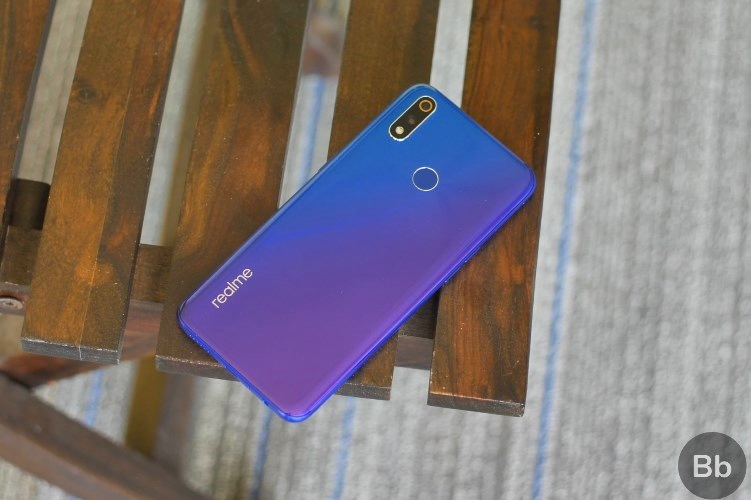
The budget smartphone segment in India is the most lucrative and competitive right now, with Redmi Note 7 Pro leading the lot with a feature-rich and powerful offering. However, Realme has today unveiled the much-anticipated Realme 3 Pro (starts at ₹13,999) and it now looks to shake up the dominant force of Xiaomi’s Redmi Note lineup with aggressive pricing.
Realme 3 Pro is a noticeable upgrade over its predecessor, the Realme 2 Pro. It boasts a new gradient finish, powerful internals backed by Snapdragon 710 chipset, dual cameras with its primary sensor borrowed from the OnePlus 6T, high-megapixel selfie camera and super-fast VOOC charging.
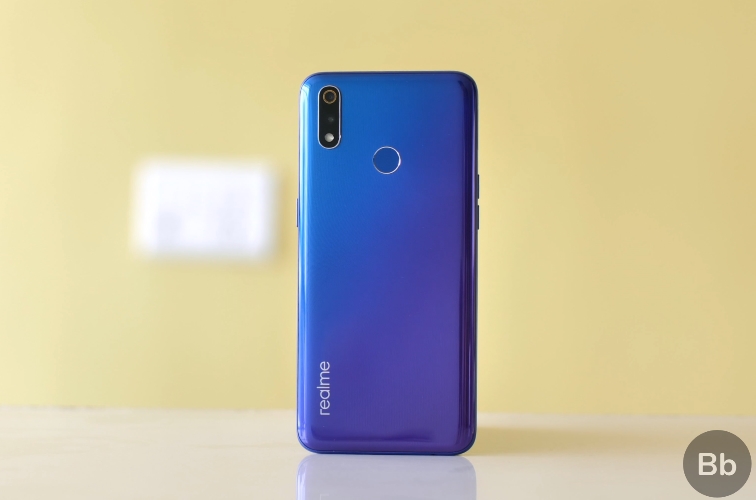
The brand new Realme 3 Pro is all set to take on the Redmi Note 7 Pro and here are my initial impressions of the fiercest rival to the budget smartphone king:
Specifications
Instead of directly diving into my thoughts about the Realme 3 Pro, here’s a quick look at its specs sheet:
| Dimensions | 156.8 x 74.2 x 8.3mm |
|---|---|
| Weight | 172 grams |
| Display | 6.3-inch Full-HD+ LCD IPS |
| Processor | Snapdragon 710 |
| GPU | Adreno 616 |
| RAM | up to 6GB |
| Storage | up to 128GB |
| Rear Cameras | 16MP (f/1.7) + 5MP (f/2.4) + LED flash |
| Selfie Camera | 25MP (f/2.0) |
| Software | Android 9 Pie-based Color OS 6.0 |
| Connectivity | 802.11 a/b/g/n/ac, Bluetooth 5.0, dual nano-SIM, 3.5mm headphone jack, microUSB port |
| Sensors | Light and proximity, Gyroscope, Gravity and Magentic sensor |
| Battery | 4045mAh, 20W VOOC 3.0 charger |
| Colors | Carbon Gray, Nitro Blue, Lightning Purple |
What’s in the Box
Realme now packages its smartphones in their signature gray and yellow box. I still feel that it looks pretty bland and doesn’t really attract you, but it’s what inside that matters and the Realme 3 Pro brings all of the essentials in tow. Here’s everything you get inside the box:
- Realme 3 Pro
- 1x Charging adapter
- 1x microUSB cable
- 1x SIM ejector tool
- 1x clear silicone case
- User manuals
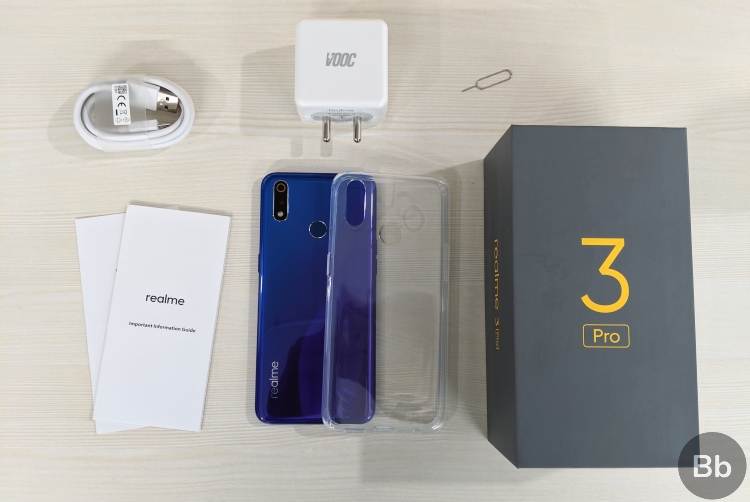
Design and Build
Right off the bat, you see that the Realme 3 Pro has parted ways with its once-popular diamond-cut and acrylic finishes in favor of a curved gradient panel with its third-generation phones and I’m totally in favor of the upgrade.
The Realme 3 Pro has a plastic (polycarbonate) rear panel that’s been polished to give it a glass-like look and feel. It won’t obviously have the more premium and chunkier in-hand feel as the Redmi Note 7 Pro, but you’re obviously going to slap a case on it so there’s no debating the material used. The gradient finish here has trickled down from the Realme 3, and the S-like lines on the rear (representing speed, as per Realme) definitely looks cool.
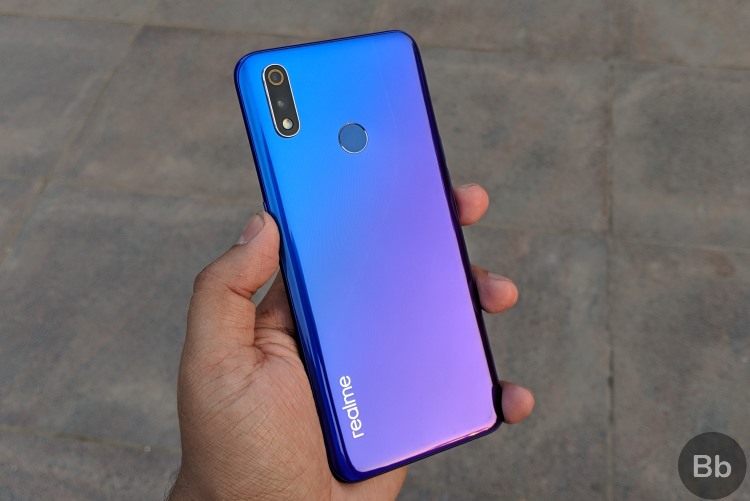
I like the Nitro Blue color variant that we have with us, but the Lightning Purple variant is probably my favorite among the lot. The panel is shiny and reflective, but that’s trendy right now right?.
My biggest concern with a plastic back, however, will have to be wear and tear. I’m hoping Realme 3 Pro isn’t as scratch prone as its predecessor, whose rear panel turned out to be shabby just within a few months. The back panel attracts fingerprints and smudges easily, and it also becomes a little slippery in sweaty palms.
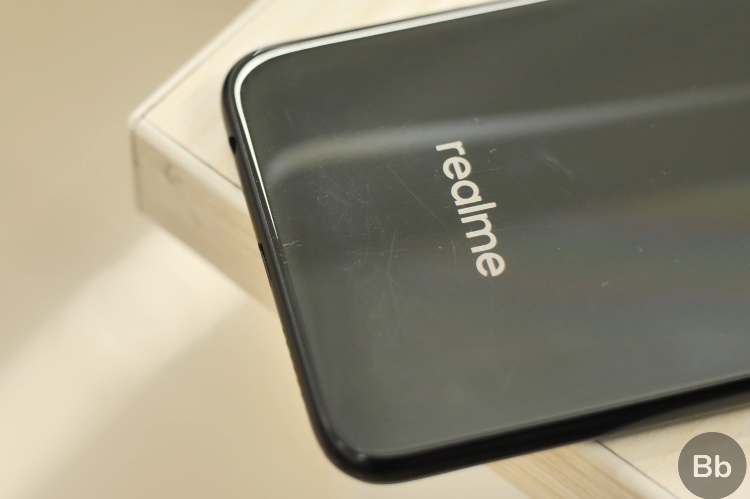
Apart from that, there’s a physical fingerprint scanner here that is super fast, so I like it. On top, there’s a dual SIM slot with a dedicated microSD slot that allows you to expand storage up to 256GB. The bottom features the 3.5mm headphone jack, speaker, and the microUSB port. Now, that last bit does disappoint me.
I thought 2019 would be the year where even the budget devices finally move to the USB-C standard, so the microUSB port on Realme 3 Pro is a tad bit disappointing. Now, I know that the Realme 3 Pro comes with super fast VOOC charging, which kind of makes up for the lack of the USB-C port and even Realme cited me the same reason in a press briefing, but USB-C would have certainly made me happier.
Realme 3 Pro has a functional design that’s definitely in line with the times and better than the Realme 2 Pro. The inclusion of faster charging is awesome, but what about the display? Well, at first glance, it looks better than its predecessor and it’s what we’ll talk about next.
Display
Turning our attention to the front, well, it is almost identical to the Realme 2 Pro, with a dewdrop notch up-top and a same-sized chin at the bottom. Even the display size of the Realme 3 Pro is the same as its predecessor. It features a 6.3-inch Full-HD+ screen, with a display resolution of 2340x1080p and 408ppi pixel density.
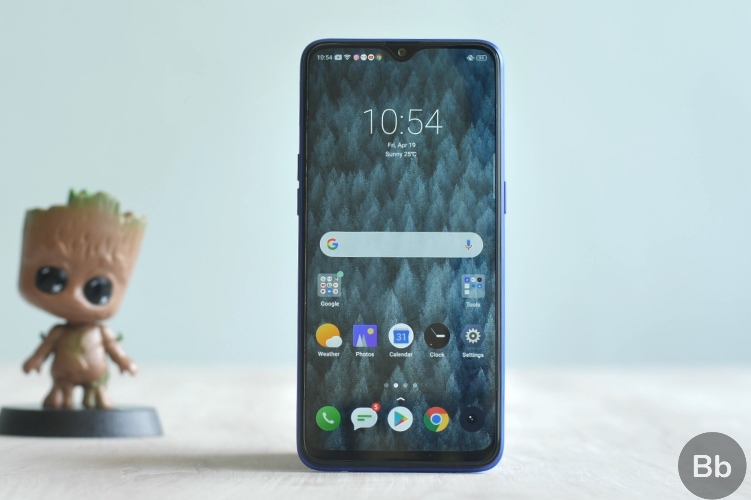
While it’s essentially the same display panel, the quality on the Realme 3 Pro is certainly better at first look. Just check out the whites on these two phones, which we’ve shown in our first impression YouTube video. The Realme 3 Pro display has better colors, it’s more vibrant, and just all around improved at first look.
Plus, there’s Gorilla Glass 5 protection onboard this time around, which finally seems like a decent upgrade over Gorilla Glass 3 that the company had been using prior to this.
Performance
Moving away from the design and build, a lot has changed on the hardware and camera front. So, let’s first talk about the hardware, which has been the point of debate over the last few days.
The Realme 3 Pro is powered by the 10nm octa-core Snapdragon 710 chipset, and while this is definitely a great processor for a budget smartphone, a lot has been said about it, not only from Realme but from Xiaomi as well. So, we decided to pit the two processors against each other and you’ll be able to read our in-depth findings for the same soon.
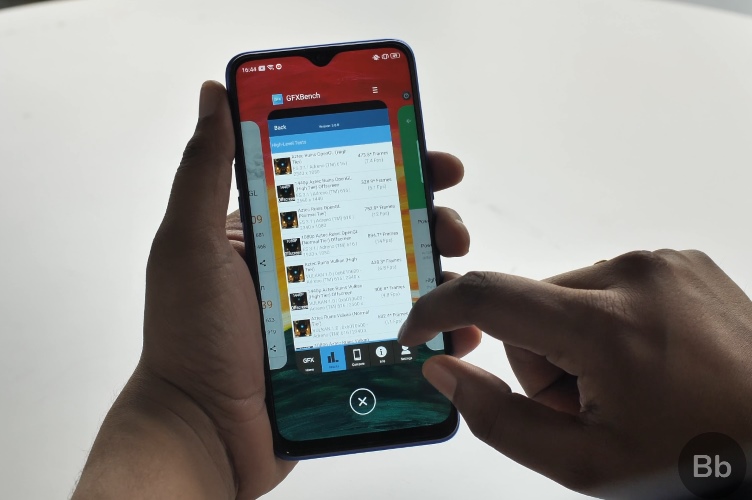
In short, you can say that both the Snapdragon 710 and the Snapdragon 675 are really powerful processors for a budget smartphone and both have their advantages, but what you need to understand is that benchmarks don’t mean everything. Obviously, the real world performance is what matters most, and both Realme 3 Pro and Redmi Note 7 Pro would provide you equally good user experience.
Cameras
Next up, the Realme 3 Pro also brings major improvements on the camera front. While there’s no hyped up 48MP camera here, Realme 3 Pro has a capable 16MP (f/1.7)+ 5MP (f/2.4) dual-rear camera module. Now, I said “capable” because the primary sensor here is the same high-end Sony IMX 519 sensor as the OnePlus 6T and it’s the highlight of the camera experience.
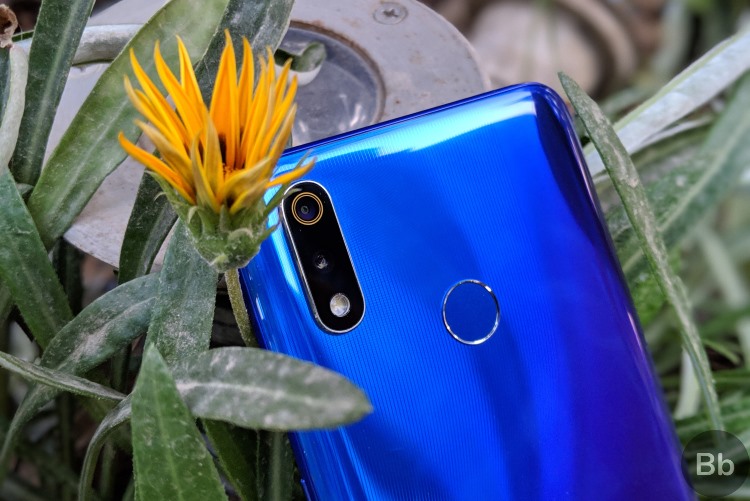
Well, we’ve been taking photos from the Realme 3 Pro, and the results have surely been quite impressive. The rear camera on this smartphone has so far impressed me with the details, colors, and brightness, be it in the day time or low light. Some photos do seem a bit oversaturated at times (you can make them saturated too with Chrome Boost), but it overall looks pretty good and things look promising. You can check out some pictures we clicked below:

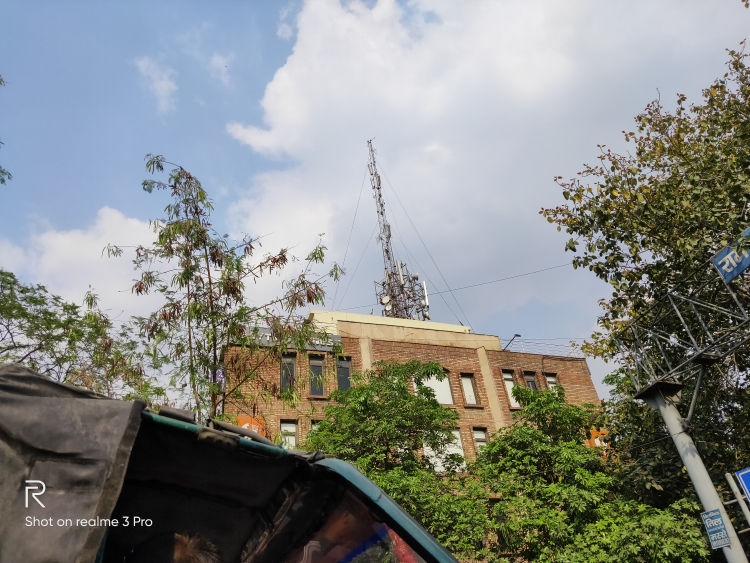
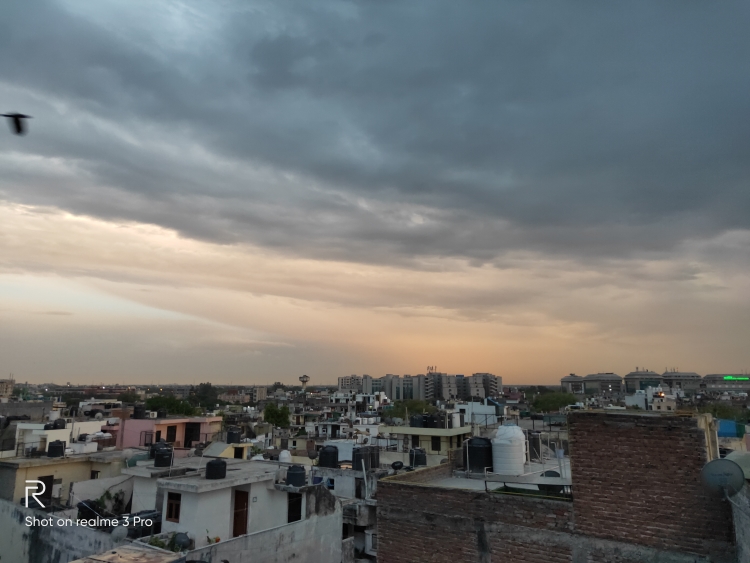

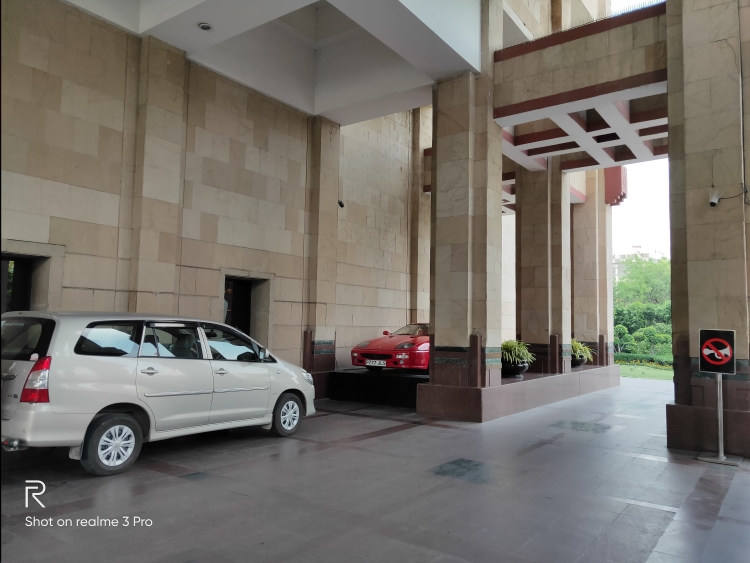
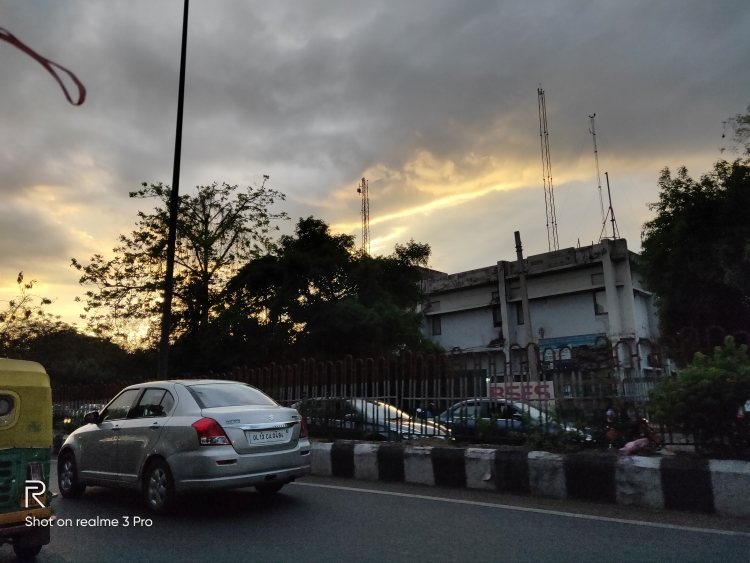
So, the Realme 3 Pro does take some great shots, and I like the fact that the camera app here is feature packed. There’s Nightscape, which is basically the night mode feature and the new UltraHD mode takes four shots and combines them to create one Ultra-HD 64MP picture.
When it comes to the selfie camera, the Realme 3 Pro packs a 25MP f/2.0 camera that in my brief usage, appears pretty good. Here are a few selfies from the phone, and so far, I definitely like the selfies and portrait shots taken with the Realme 3 Pro. They seem well detailed and sharp, so I am positive about this department too. 


We even took some comparison shots with the Redmi Note 7 Pro, and well, the Realme 3 Pro manages to stand tall against the budget king. The latter captures some pretty good pictures and there are even instances when the Note 7 Pro pales in comparison. More on this coming really soon, so keep an eye out.
User Experience
Realme 3 Pro comes with the latest ColorOS 6.0 skin on top of Android Pie, and while I’m still not the biggest fan of ColorOS, I appreciate the improvements it brings over ColorOS 5.0. There’s an app drawer now, you no longer need to go to the settings to change the wallpaper, the notification shade is still shady but definitely better, and I like the fact that there are no ads here, unlike MIUI and Experience UI on the Galaxy M series. The UI has been polished and reminds me of MIUI at times.
Battery Life
The Realme 3 Pro brings a huge 4,045 mAh battery, which should be enough to last users pretty long on a single charge. I am yet to test the battery life on the phone, but I appreciate the inclusion of the battery saving features, like Smart Power Saver, and the Super High Power Efficiency mode.
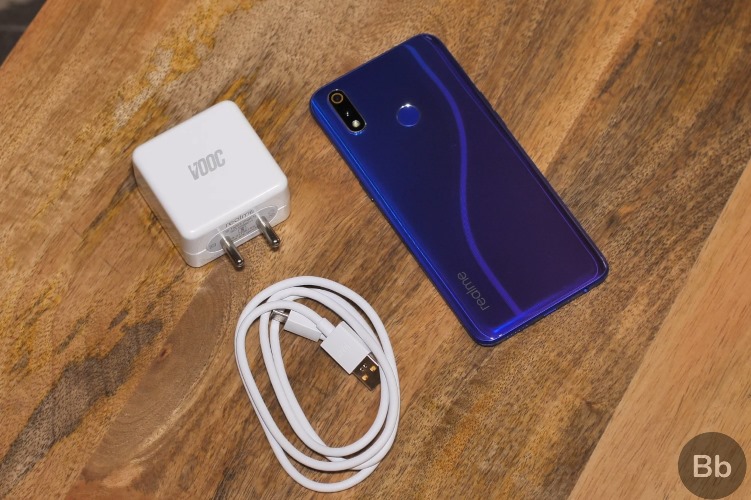
Plus, like I said, there’s fast charging on board. The Realme 3 Pro comes with VOOC 3.0 fast charging, and you get a 20W (5V, 4A) fast charger bundled in the box. Yes, you heard that right and that’s honestly impressive. It’s mildly better than the 18W Quick Charge 4.0 tech found on the Note 7 Pro. I mean, Realme 3 Pro is said to charge fully in 80 minutes, and that’s just amazing for users picking up this device.
Realme 3 Pro First Impressions: Can it Beat the Redmi Note 7 Pro?
So, I hope that was a good look at the Realme 3 Pro and the one thing that’s pretty clear right now is that the Realme 3 Pro stands tall against the Redmi Note 7 Pro. This is the latest smartphone that strongly rivals Xiaomi’s Redmi Note lineup and does that with functional, solid design, a tall and beautiful display, power-packed performance, capable cameras, a massive battery, and super fast charging.
There has been a lot of hype around the Realme 3 Pro and I believe the smartphone truly deserves the hype. However, if it is better than the Redmi Note 7 Pro or not is something we will explore in our in-depth review of the smartphone.
Until then, let us know your thoughts in the comments below and don’t forget to ask any queries you may have in the comments and we will answer them in our review.
Buy Realme 3 Pro from Flipkart: (starts at ₹13,999)
from Beebom https://beebom.com/realme-3-pro-first-impressions/

No comments:
Post a Comment